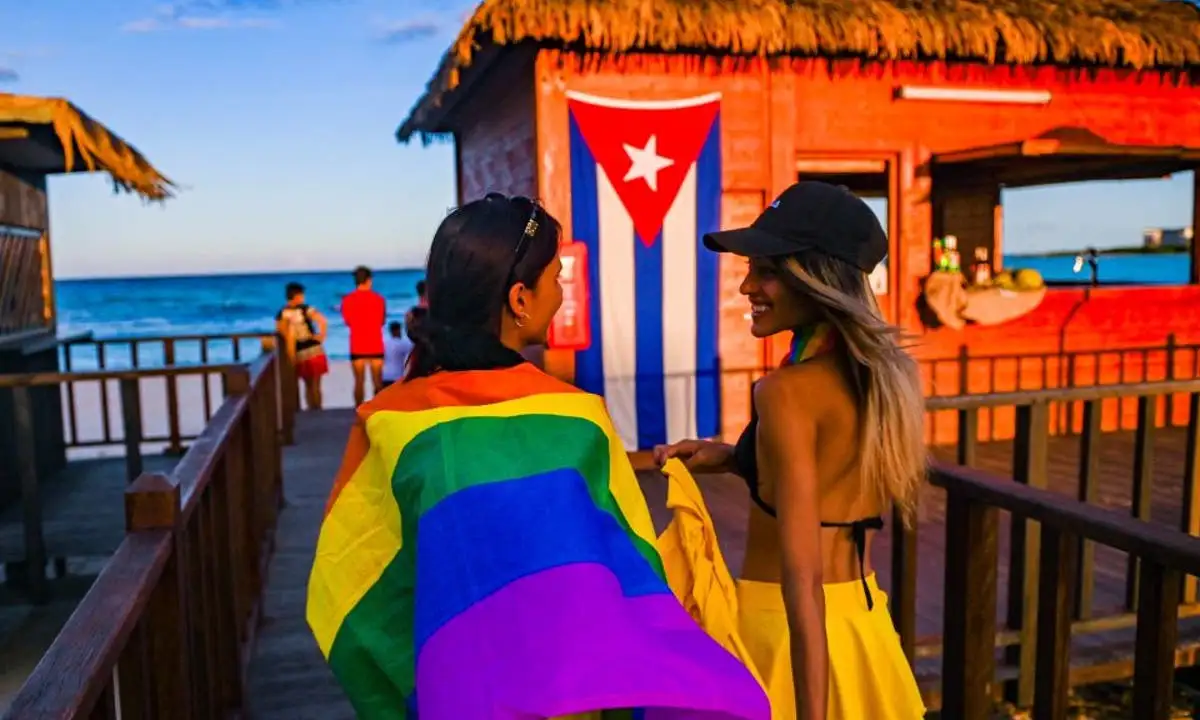Legislative
Cuban voters decisively approve gay marriage in referendum

Cuban voters voted decisively this weekend to approve gay marriage in the country, a move that gives Cuban members of the LGBTQ+ community the ability to marry, build families, and other important life choices.
Under the new legalization of gay marriage, Cuban same-sex couples are also now allowed to adopt children, enter into civil unions, and are encouraged to share household responsibilities equally between partners. The referendum was held on Sunday, with early figures showing 74 percent of Cuba’s 8.4 million eligible voters showing up to the polls.
Cuban President Miguel Díaz-Canel Tweeted on Monday in celebration of the vote, writing “Love is now the law.”
The president has long been a supporter of gay marriage, though he has pointed to the difficulties associated with such a sweeping change.
“Most of our people will vote in favor of the code, but it still has issues that our society as a whole does not understand,” he said before the referendum.
“Yes won. Justice has been done,” the president wrote. “To approve the #CódigoDeLasFamilias is to do justice. It is paying off a debt with several generations of Cuban men and women, whose family projects have been waiting for this Law for years. Starting today, we will be a better nation.”
Of the votes, 33 percent were against legalizing gay marriage in the country. Cuba has seen a rise in freedom of religion since Fidel Castro’s brother Raul succeeded him as secretary of the Cuban Communist Party in 2011. With that uptick in religious freedom has come some strong opposition to things like gay marriage.
Terry A. Hurlbut has been a student of politics, philosophy, and science for more than 35 years. He is a graduate of Yale College and has served as a physician-level laboratory administrator in a 250-bed community hospital. He also is a serious student of the Bible, is conversant in its two primary original languages, and has followed the creation-science movement closely since 1993.
-

 Executive3 days ago
Executive3 days agoThe Hunters Have Now Become The Hunted: Their Cruelties Are Swelling The Ranks Of The People Worldwide!
-

 Constitution3 days ago
Constitution3 days agoCHAPTER 9: Norman Dodd Interview Space Is No Longer the Final Frontier––Reality Is [upcoming release April 2024]
-

 Clergy2 days ago
Clergy2 days agoWhy Do The American People Let The Corrupt Media & Politicians Set The Propaganda Narrative – Speak On Their Behalf
-

 Executive5 days ago
Executive5 days agoBiden ballot woes continue
-

 Entertainment Today3 days ago
Entertainment Today3 days agoCivil War (2024) – an incomplete prediction
-
![CHAPTER 10: Objective Reality Is Required for a Free Society Space Is No Longer the Final Frontier—Reality Is [upcoming release May 2024]](https://cnav.news/wp-content/uploads/2024/04/Objective-reality-v-acceptance-400x240.png)
![CHAPTER 10: Objective Reality Is Required for a Free Society Space Is No Longer the Final Frontier—Reality Is [upcoming release May 2024]](https://cnav.news/wp-content/uploads/2024/04/Objective-reality-v-acceptance-80x80.png) Education2 days ago
Education2 days agoCHAPTER 10: Objective Reality Is Required for a Free Society Space Is No Longer the Final Frontier—Reality Is [upcoming release May 2024]
-

 Human Interest2 days ago
Human Interest2 days agoIdaho prepares to defend its abortion ban
-

 Executive4 days ago
Executive4 days agoNational Security Implications of Baltimore Bridge Catastrophe


